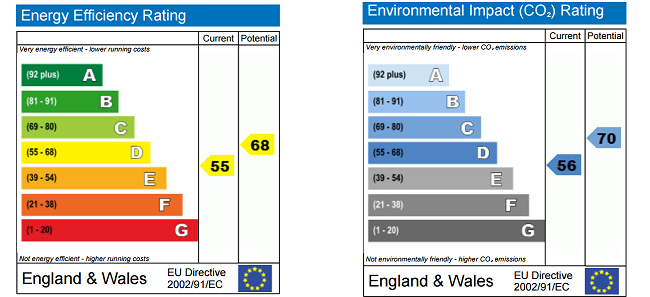Preparing your home for sale: the legal side
 Once you have made the decision to sell your property, and chosen an agent to market it through, there are several important steps you now need to take.
Once you have made the decision to sell your property, and chosen an agent to market it through, there are several important steps you now need to take.
Scott Mcallister, Sales Manager and Valuer at Martin & Co., Tunbridge Wells, shares his top tips for ensuring you’re fully prepared on the legal side of selling your home.
The EPC
You are required by law to provide an Energy Performance Certificate (EPC) when selling a property, which can be obtained via an accredited assessor.
The EPC certificate will be specific for your home and rates energy consumption, as well as making recommendations on how to reduce consumption. The rating provided within the certificate takes form in a sliding scale of A being the most efficient through to G being the least.

Having your EPC completed at this early stage in the process now gives you time to make relevant changes to improve your property energy performance if needed. Always shop around for the best price as some accreditors are cheaper than agents.
Tip: View the EPC’s of similar local properties via Rightmove to get an idea of how energy efficient your competition is. If there are ways you can improve your property’s energy efficiency, speak to your agent for advice on whether implementing these pre-sale could help increase your property’s value.
Finding a solicitor
Researching a solicitor now gives you time to pick the best one to deal with your sale. Looking for accredited solicitors who are part of a regulatory body such as Solicitors Regulation Authority will give you peace of mind during the transaction. Getting several quotes will allow to make the best decision as the cheapest is option may not always prove the best option with your biggest purchase.
By getting legally prepared will allow the pre-contract to go out soon after the memorandum which can significantly speed up the entire sales process.
As a heads up, there are several key documents that you’ll need to prepare for your solicitor, so ensure you have copies of all of these in a safe place and to hand:
Info for your agent
There is nothing worse than a last minute panic when it comes to locating all those important documents regarding the ownership of your home. Collating everything early on will not only allow you to move faster in the selling process, but will also save you stress later on.
Key documents to source and provide your agent with:
It is also a good idea to have a completed fixture and fittings form (what you’re including in your sale) at this stage, or at least to have thought about what will/won’t be included.


